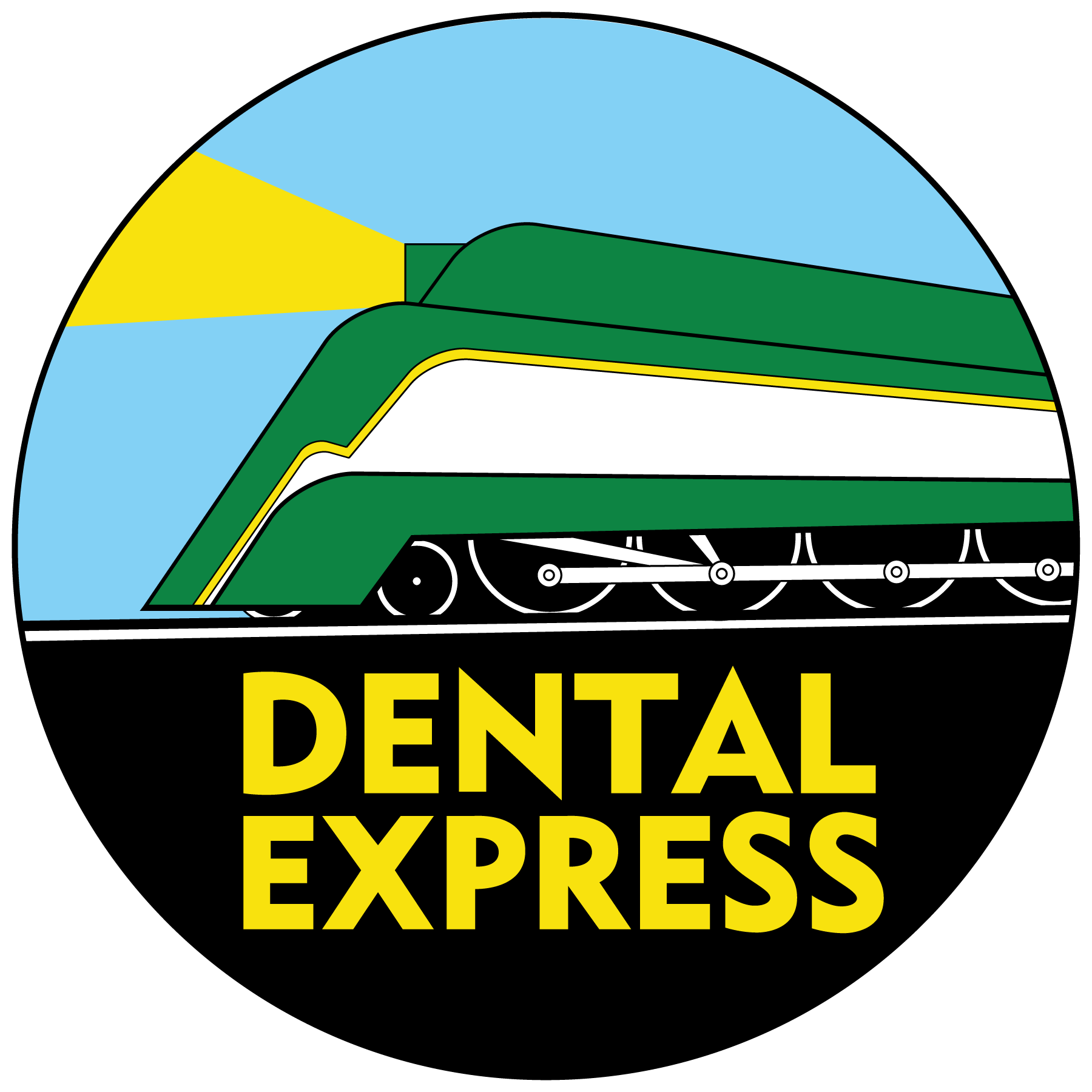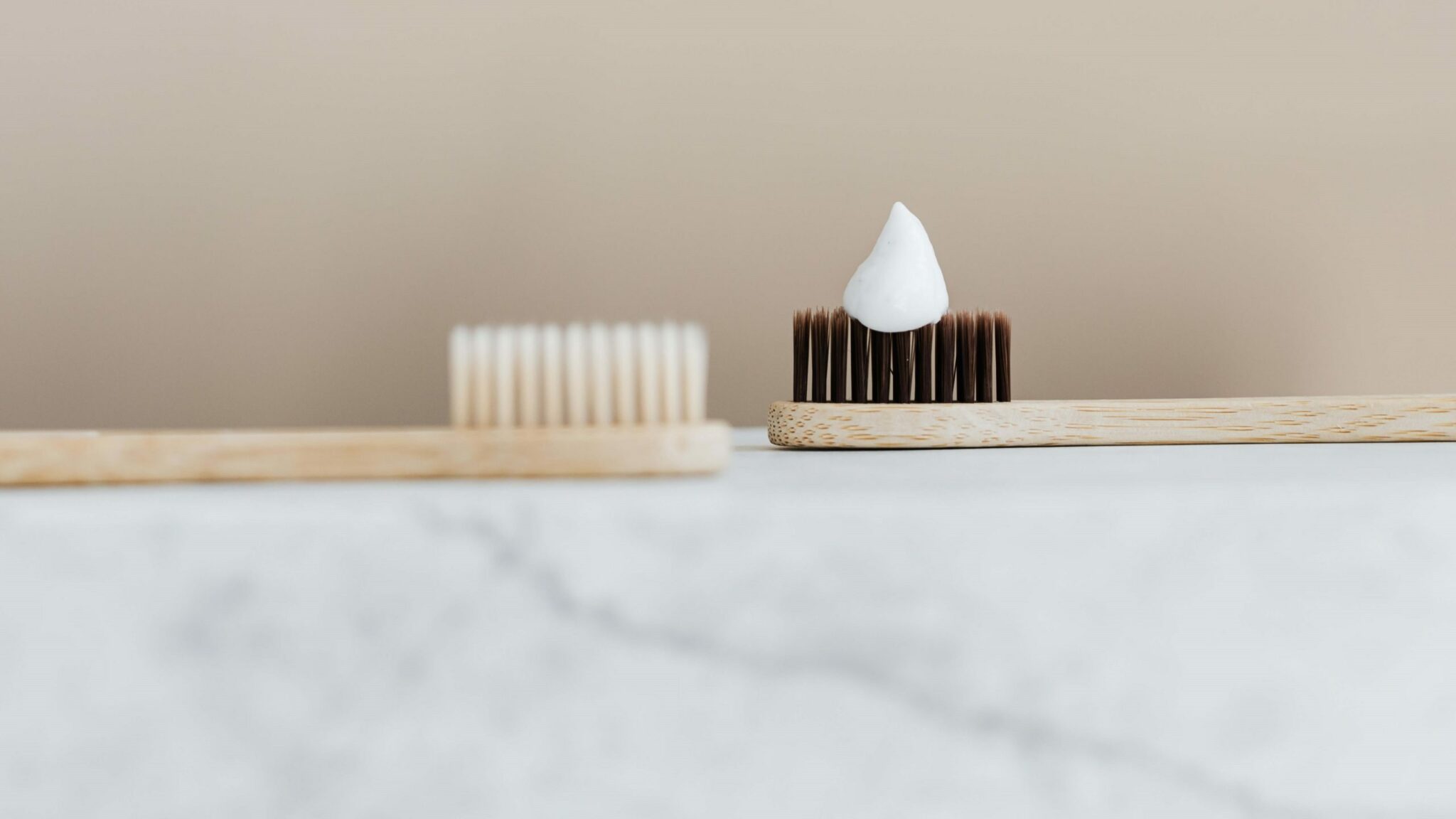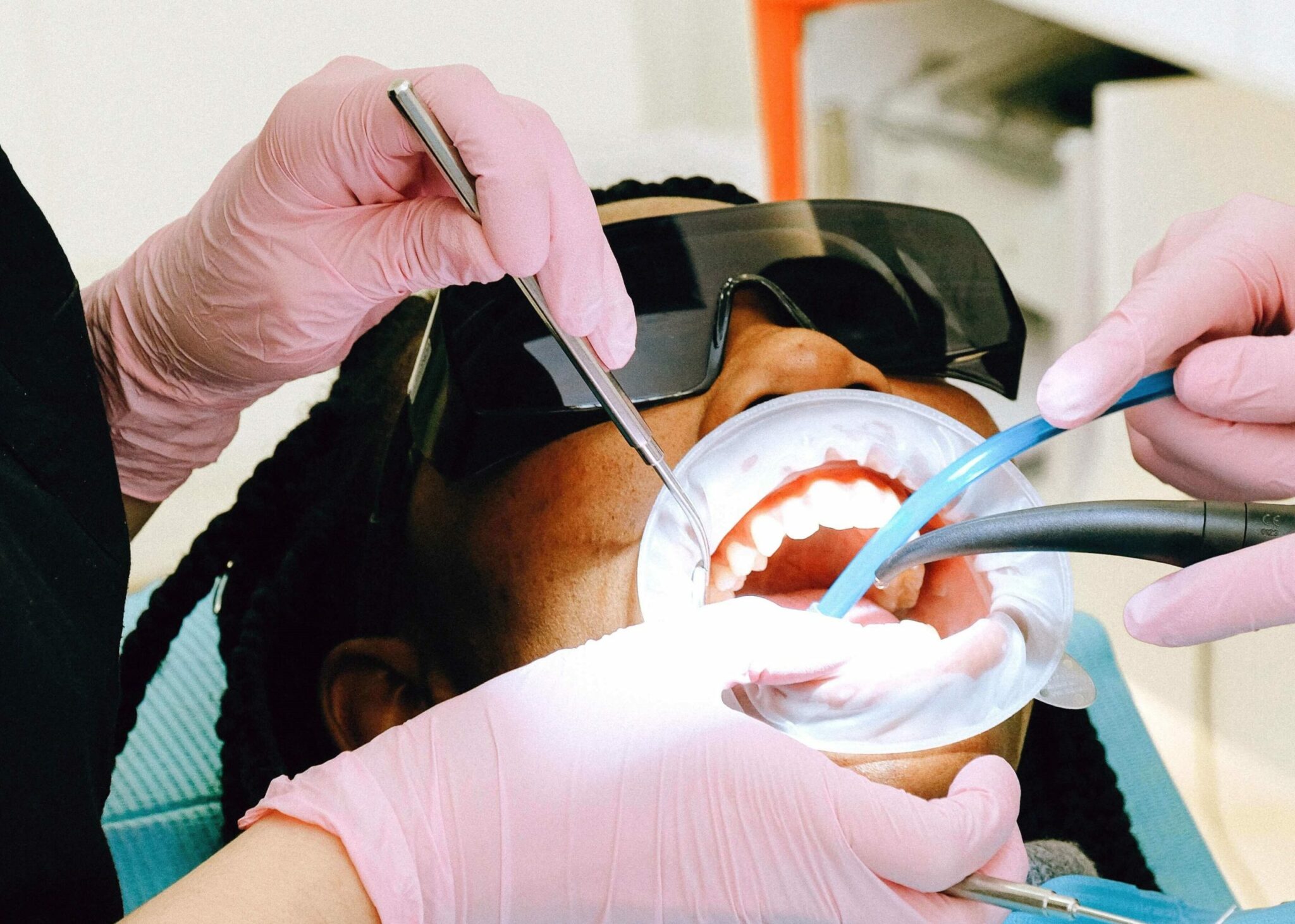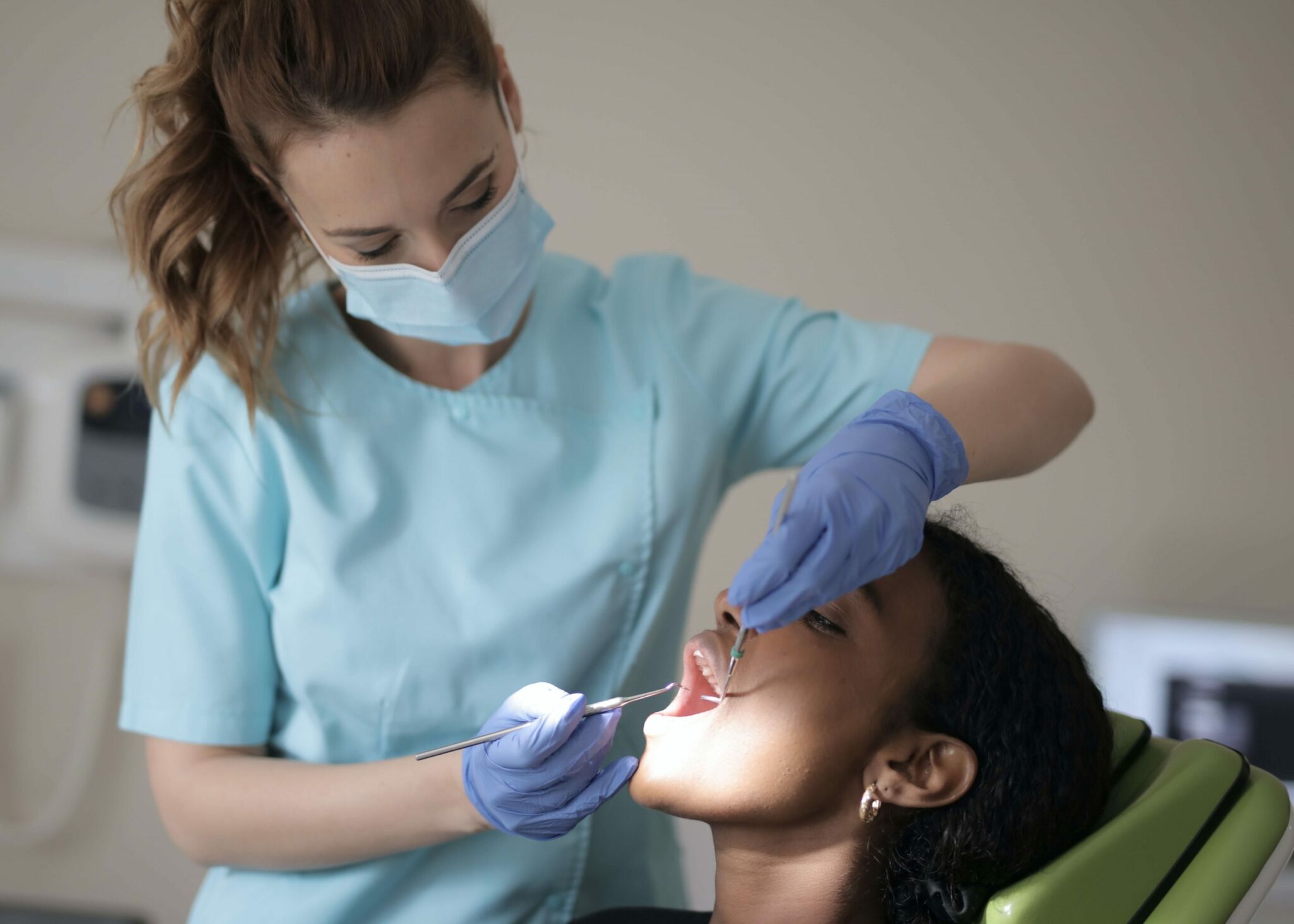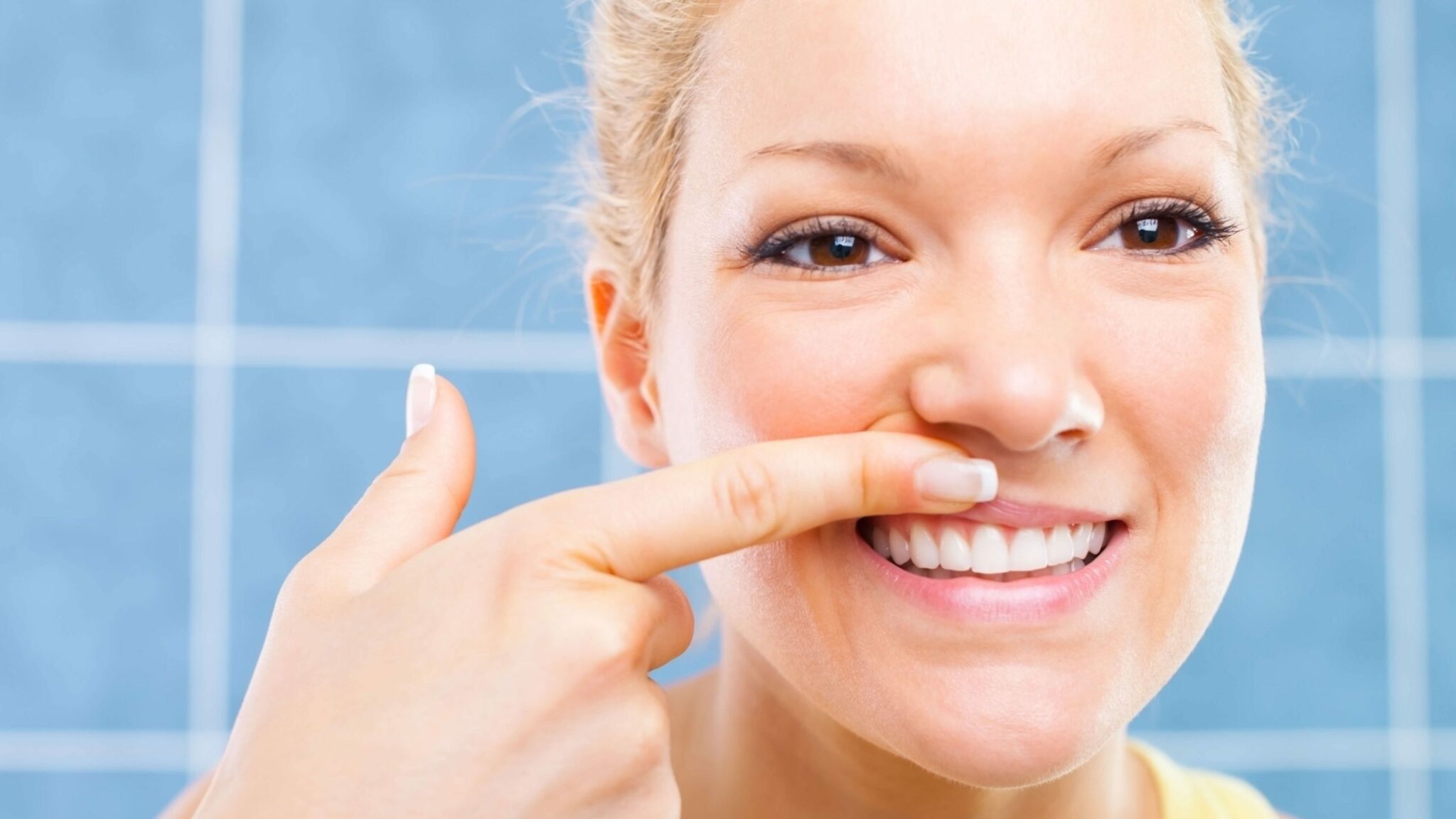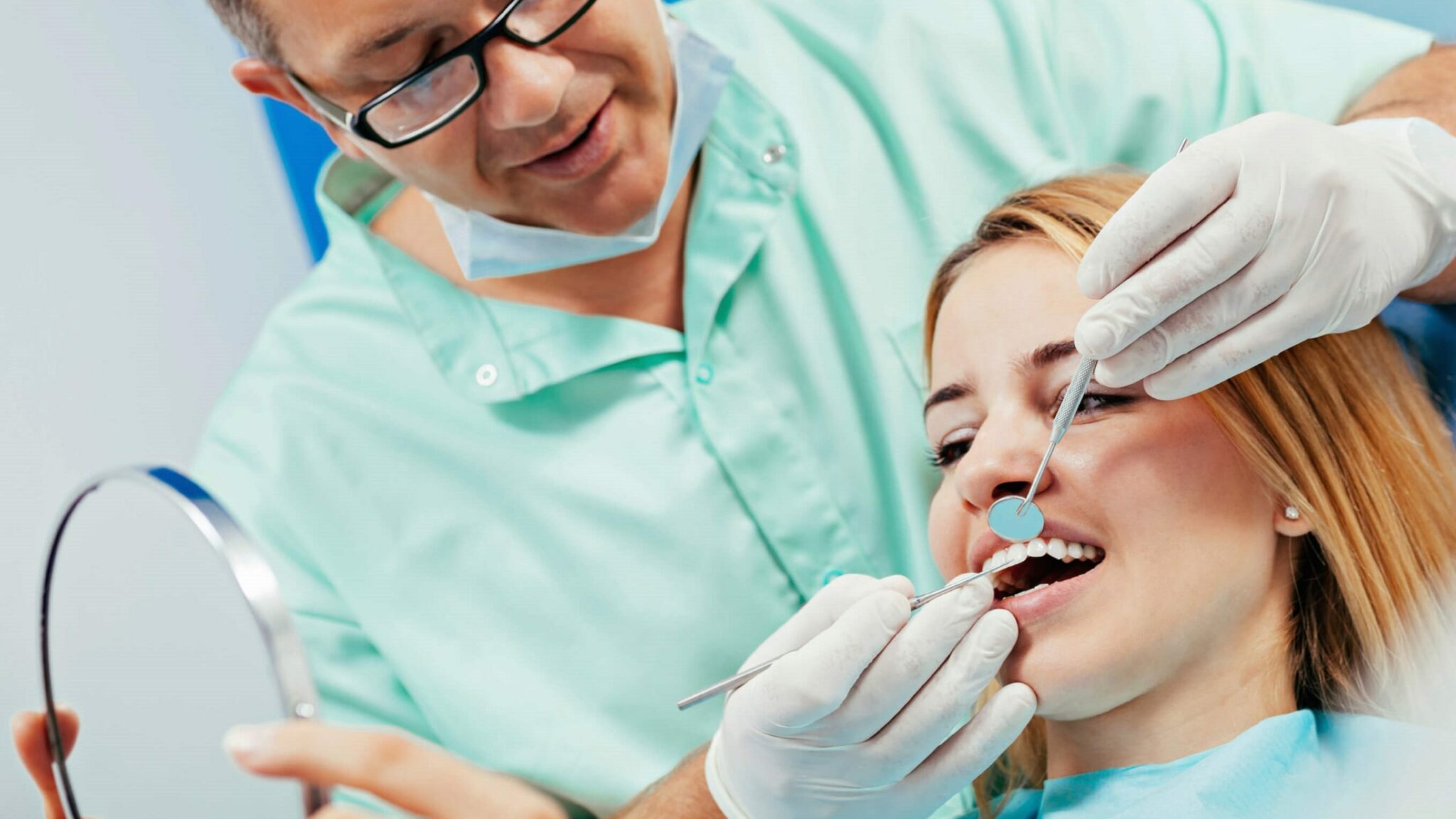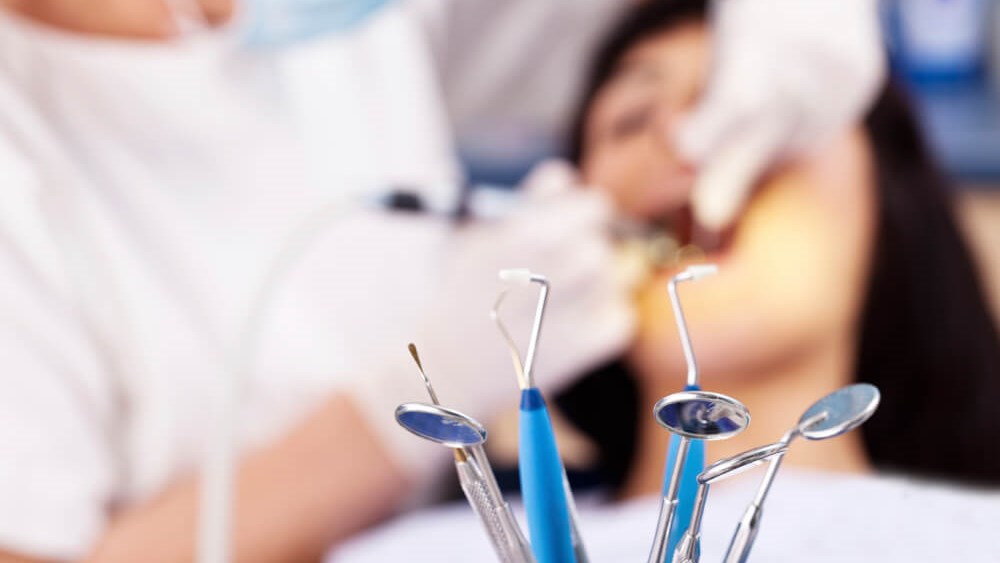Baking Soda: The Secret to At-Home Dental Care
How to save money and protect your teeth with this do-it-yourself remedy
We all have it lying around somewhere…It might be hiding in the back of your pantry. Or maybe it’s buried behind a million different bottles of assorted spices in your seasoning cabinet.
It’s time to dig it up and dust it off! That lonely little box of baking soda receding gums is the key to completely (and cheaply) transforming your at-home dental health regimen.
Just make a paste of salt water and soda and give your teeth a punch of strength.
At Dental Express, we want each of our patients to know how best to take care of their teeth outside of the office. And that extends to you too.
Our goal is to give you the tools to boost your at-home dental health and save you money at the dentist’s office. That’s why we’re going to cover the many benefits of using baking soda, and how to easily add it into your oral care routine.
What Does Baking Soda Do for Your Teeth? Whiten Teeth with Baking Soda
So, what’s so special about this everyday household item? How does it help protect your teeth? Can it really help prevent gingivitis?
In short, baking soda good for your teeth and is essentially working to balance the pH levels in your mouth to help prevent tooth decay.
If you are thinking about how to remove tooth decay yourself? Baking soda comes in the list of remedies to improve your dental health.
We all have hardened, calcified tissue called enamel that surrounds and protects our teeth’ inner layers. You’ve probably seen a thousand toothpaste commercials over the years warning you about the dangers of enamel decay.
Well, they’re right.
Since enamel doesn’t contain any living tissue, once it’s gone, it’s gone.
The only way to restore decayed or worn-down enamel is by going to a dental professional. That’s why it’s incredibly important to get regular dental check-ups and do all we can at home to improve our dental health.
The Dental Health Security Guard
When we eat or drink, the acid in whatever we’re ingesting causes something called acid erosion.
According to the Academy of General Dentistry, erosion occurs when acid in the foods and drinks you consume wears away your enamel.
Without proper care and attention, this can eventually lead to the exposure of your teeth’ inner layers, causing them to look damaged and discolored.
The American Dental Association states that the critical pH, meaning the point when acid erosion starts to occur, is when your mouth’s pH level drops below 5.1-5.5. Typically, this effect happens when we eat or drink foods rich in carbohydrates, and it takes 1 to 2 hours to go back to normal.
So, it all boils down to the pH levels in your mouth.
Acidic foods and drinks lower your pH levels past the critical point, and foods on the other end of the pH spectrum help provide balance to prevent tooth decay.
Tooth Decay Treatment at Home
HOW CAN BAKING SODA SOLVE YOUR PROBLEMS?
Thanks to its high pH, baking soda serves as a strong bodyguard for our enamel.
Raising the pH levels in our mouth protects our teeth from the dangerous side effects of high acidity.
In fact, a PubMed study at the University of Manitoba shows that when used soon after eating, high baking soda toothpaste helps the mouth’s pH levels return to normal much faster than toothpaste with lower amounts, significantly decreasing the risk of cavities.
Moreover, baking soda for teeth and gums helps to kill bacteria on the teeth and protect your gums from getting damaged.
It is also one of the best materials to break up the biofilm and remove all the stains from your teeth.
And you’ll be amazed at all the other ways baking soda can positively impact your dental health.
Does Baking Soda Help with Gingivitis?
The answer to that question is a resounding YES!
This DENTAL SECRET is perhaps the biggest item on the baking soda benefits list.
Also known as gum disease, gingivitis is a painful condition caused by the buildup of plaque on your teeth.
As a result of poor dental hygiene, gingivitis can lead to swollen, sensitive gums, and it can cause gums to recede or even bleed when brushing or flossing. Bad breath is another unfortunate result of this awful condition.
But don’t worry, believe it or not, baking soda can tackle every single problem caused by gingivitis!
Brushing with baking soda for dental health or using soda toothpaste is a great way to reduce and prevent gingivitis-causing plaque buildup.
The ingredient is safe to use once a day as it does not harm your teeth.
Less plaque means less tooth decay, which means you can say goodbye to bad breath.
Because of its pH-balancing effects, baking soda for teeth also helps minimize swelling and sensitivity, promoting happy, healthy gums.
And as you might have guessed, when your gums and teeth are gingivitis-free, that means fewer trips to the dreaded dentist’s office!
When you’re proactive with your at-home dental care, you can show off your smile with confidence, knowing that you’re taking good care of your teeth and saving money in the process.
All-in-One Oral Health
In addition to helping heal and prevent gingivitis, baking soda has some other tricks up its sleeve. We mentioned that it helps reduce the risk of cavities, but it doesn’t stop there…
- Repairs damage caused by cavities: The American Dental Association states that by getting rid of plaque, soda helps stop cavities that are in the beginning stages of forming, and actually repairs the damage they cause.
- Bye-bye bad breath: Baking soda doesn’t just fight bad breath caused by gingivitis. It helps fix morning breath, coffee breath, and everyday bad breath too!
- Results you can see: Baking soda toothpaste proves more effective at removing stains and dental teeth whitening than other toothpaste. When you see your smile visibly getting whiter, the happiness and confidence you’ll feel will motivate you to stay on top of your dental health!
- Out with the bad, in with the good: Studies show that not only does baking soda help remove unwanted bacteria from the mouth, it also fosters the growth of good bacteria. This benefit creates an even healthier environment for your teeth and gums to thrive in.
- Where no toothpaste has gone before: A study cited by the American Dental Association states that toothpaste containing bake soda actually hits harder-to-reach places more effectively than toothpaste without it. More coverage means less plaque, which means a healthier mouth!
- Rinse away the pain: Can’t smile or open your mouth without a painful sore giving you grief? Baking soda is proven to help relieve pain and even speed up the healing process!
It’s hard to believe just how beneficial baking soda can be for your dental health. And the best part is, it’s super easy and affordable to add to your daily routine.
How To Get Rid of Cavities by Adding Baking Soda to Your Dental Care Routine?
Armed with all this knowledge, let’s learn how to apply it.
As it turns out, working baking soda into your dental care regimen is as easy as brushing your teeth!
We recommend picking up some soda toothpaste for two reasons:
1. Baking Soda toothpaste tastes better.
2. Baking soda is much easier to use every day and reap the benefits.
Whatever kind you choose, make sure it also has fluoride treatment, an essential ingredient! Of course, if you’d rather have plain soda you can find it at your local grocery store.
Baking soda is cheap and effective!
If you don’t already have baking soda toothpaste, just put some regular toothpaste on your brush, wet it, and coat it with bake soda. Then brush away! This at-home solution also works without toothpaste. Simply wet your toothbrush, dip it into baking soda, and brush.
If you notice you have bad breath, simply mix a tiny spoonful (approximately 2 tsp) of bake soda into water and swish it around like mouthwash to leave your mouth feeling clean and refreshed.
This at-home baking soda remedy is a great way to ease discomfort and accelerate the healing of any painful mouth sores.
Baking soda is quite possibly the easiest and most affordable way to improve your dental health outside the <a title=”dentist’s office” href=”https://www.thedentalexpress.com/”>dentist’s office.
From battling gingivitis to beating bad breath, it’s safe to say that we can all benefit from using soda in our daily routines.
Before long, you’ll notice your gums feeling healthier, your teeth looking whiter, and your smile looking happier. Oh, and your wallet will feel a little heavier too!
YOU-Focused Dental Care
At Dental Express, we know how important it is for our patients to build healthy habits at home to take better care of their teeth.
We aim to provide knowledge and services that keep your smile as healthy as possible while saving you money along the way.
If you’re looking for family-friendly, affordable dentists San Diego area, we’ve got you covered. Make an appointment at any one of our 6 locations today.
We look forward to seeing your smile!
Sources
AGD Tooth erosion: http://www.agd.org/public/OralHealthFacts/files/pdfgenerator.aspx?pdf=FS_ToothErosion.pdf&id=307565#:~:text=Acid%20erosion%20occurs%20when%20acid,cracked%2C%20transparent%2C%20and%20discolored.
ADA – Baking soda dentifrices and oral health https://jada.ada.org/article/S0002-8177(17)30822-X/fulltext#secsectitle0015
ADA – Effect of baking soda in dentifrices on plaque removal https://jada.ada.org/article/S0002-8177(17)30809-7/fulltext#secsectitle0055
University of Manitoba study: https://pubmed.ncbi.nlm.nih.gov/11524867/
https://www.mayoclinic.org/diseases-conditions/gingivitis/symptoms-causes/syc-20354453
